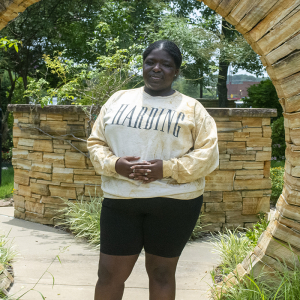Words of Wisdom: Advice from the Professors
By NEXT Staff on Thursday, September 9, 2010
They've been there and seen that. Get advice from the professors before you even step on campus.
Leave Your Comfort Zone
Break out of your shell and become part of the campus community. Most institutions – even small ones – have hundreds of organizations and activities for students. Find something that interests you and get involved, particularly if it is a society or organization that relates to your area of study. Attend social functions, such as dances, movies or athletic events. The friendships and relationships that you create can last a lifetime and will be a big part of your education and maturation.
When you get to class, break out of your shell again and take part. Participate in discussions and ask questions, especially if you don’t understand something. And don’t seek out only those professors or classes that have a reputation for being easy. You will get the most benefit from the classes that challenge you the most.
-David Keith, University of Central Arkansas
Focus on Intellectual & Personal Growth
Remember, college is your job for the next four years. Don’t dilute the experience by working too much at a part-time or (heaven forbid) a full-time job. You’re there to better yourself so that you have choices for the future, and being a student needs to be your No. 1 priority. So study hard, go to class, do your homework, ask questions, and get to know your professors. But also play hard — meet new people, try new things to eat and play, and seek out new cultural experiences. College is about exposing yourself to new experiences, ideas and people who can help you grow, learn and decide for yourself who you are.
-Donna Lampkin Stephens, University of Central Arkansas
Manage Your Time
One of my college professors told me that the difference between an unsuccessful student (she meant me) and a successful student is time management. I thought of the two-minute drill, sideline throws and the “boos” when a receiver didn’t get out of bounds, and realized I was that receiver.
Most students spend 15 hours in the classroom each week. Most professors expect two hours of prep for each classroom hour – more during midterms and finals. That’s a 45-hour work week. Add a job or internship, family responsibilities, a social life (unless you are an engineering major), and there is just not enough time.
The game plan: Make a schedule with daily specific, focused, realistic tasks (get a first down, then get into field-goal range). Study at the same time every day so it becomes a habit (the way you practice is the way you will play). If you are a morning person, take morning classes and study in the morning (play to your strength). Don’t waste time, but schedule downtimes – or down days – so you can recharge (save your timeouts). And when you win, celebrate.
-Mark Funk, University of Arkansas at Little Rock
Stay in Touch with Reality
Don’t get trapped in the “bubble” of your campus and begin to lose connection with the broader world. My advice is to find some time for engagement with the community beyond campus from the start of your college career.
Even a few hours of engagement in community groups, public service or voluntarism per week has several benefits. First, you can investigate how the theoretical topics discussed in classes play out in practice; for example, working on a political campaign will highlight the strengths and limitations of scholarly research on elections. Second, even our more diverse campuses are still much more homogenous than the broader community. Getting to know folks away from campus can help smooth the transition back to the broader community in the summer months and after graduation. Finally, it’s important to avoid seeing your GPA as the only thing that indicates your value as a person. Participation in community activities reminds you that even if you fail to achieve a 4.0, you are making a difference in the world. Engagement in the broader world helps you maintain a vital balance in life that will make you a more whole person.
-Jay Barth, ME, Hendrix College
Don’t Guess; Be Inquisitive
One challenge of being new in the college scene is finding answers to questions when you don’t know the questions to ask. As an entering student you are not expected to understand all the ins and outs of the system, but if you pretend you do or think you should have the answers, you will miss an important opportunity to learn early on how to be your own best advocate.
Ask your academic advisor or an instructor to help you understand details about registering, choosing classes, grading policies, and important dates for adding and dropping courses. If you don’t understand the answers you get, ask another faculty member. Don’t just rely on another student’s “know-how.” Your college/university academic record stays with you for life.
-Rosalie M. Cheatham, University of Arkansas at Little Rock
“Be Quick. Don’t Hurry.”
This quote from legendary college basketball coach John Wooden is so important for you to think about as you start your college journey. You need to be quick as a new freshman. The need to quickly learn that if you don’t study, go to class and work hard, your grades will show it, is vital to your future. I have seen countless freshmen waste a semester or two, ruin their GPA, and add lots of student loan debt, which without a degree is like paying for a car that you never get to drive. You must be quick in adjusting from the very protective structure of high school to the self-accountability of college. You are responsible for your actions, and as long as you embrace that, college can be one of the best experiences of your life.
But don’t try to hurry through college, taking the easiest classes you can find. Despite what anyone may have told you, your college degree doesn’t entitle you to anything. It doesn’t guarantee you a job, or a career, or the life you want. If you try to hurry through and learn as little as possible in college and participate in as few things as possible, you will likely not be the type of job candidate any serious company would want. So be quick to engage in the incredible experience of college and learning, but don’t hurry as you may miss out on the knowledge, skills, relationships and experiences that will give you the best memories and the highest quality of life as an adult.
-Dr. C. Shane Hunt, Arkansas State University
Be Professional with Professors
Go to class. While missing three or four lectures doesn’t sound like much, when classes only meet two or three days each week, that is a lot of material. Students always ask if there is any way they can appeal a course grade, but usually, they missed numerous class meetings, which was reflected in the grade. This may be a result of an attendance policy or just the fact that they missed discussions, assignments, homework, and/or quizzes.
Secondly, do your work and turn it in on time. Late papers, or no papers, not only reflect poorly on the student, but also result in lower grades. Later, students often ask to do “extra credit” to raise low grades, but I contend that “extra” means exactly that – extra – implying that all assignments have already been completed. If a student does what they are supposed to, when they are supposed to, they won’t need extra credit.
Thirdly, don’t put your professors on the defensive. If you need help understanding anything related to the class, ask for help in a positive way. If you approach a professor in an accusatory or negative way, the professor is less likely to want to help. Most faculty are very willing to spend time with students who really want to understand and are looking for support and advice.
-Dr. Maralyn Sommer, Henderson State University















